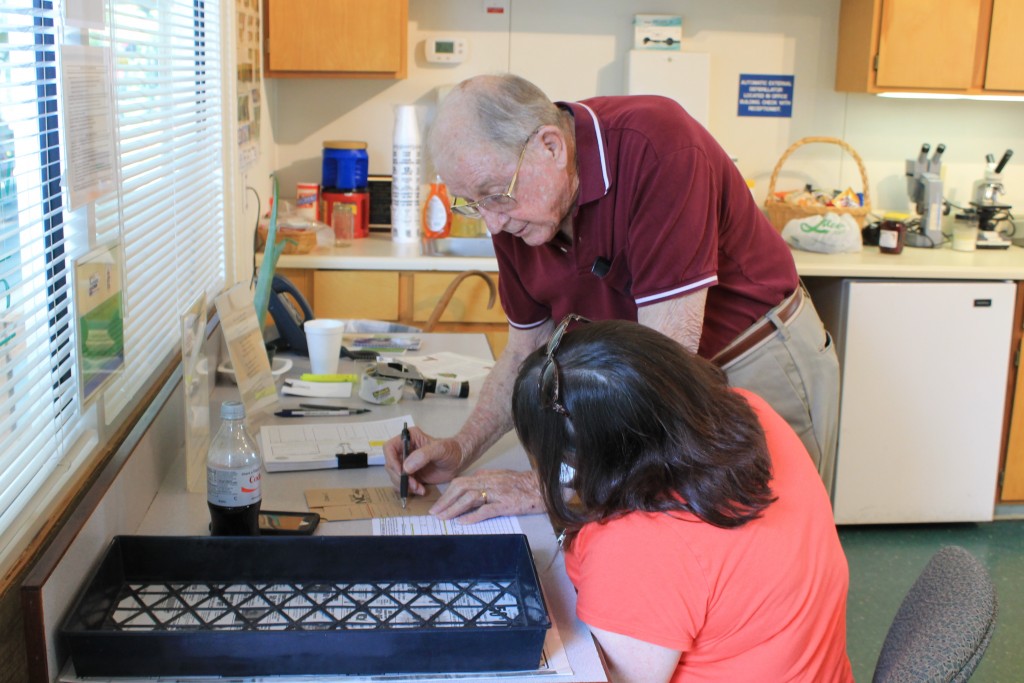The Importance of Soil Sampling
go.ncsu.edu/readext?402534
en Español / em Português
El inglés es el idioma de control de esta página. En la medida en que haya algún conflicto entre la traducción al inglés y la traducción, el inglés prevalece.
Al hacer clic en el enlace de traducción se activa un servicio de traducción gratuito para convertir la página al español. Al igual que con cualquier traducción por Internet, la conversión no es sensible al contexto y puede que no traduzca el texto en su significado original. NC State Extension no garantiza la exactitud del texto traducido. Por favor, tenga en cuenta que algunas aplicaciones y/o servicios pueden no funcionar como se espera cuando se traducen.
Português
Inglês é o idioma de controle desta página. Na medida que haja algum conflito entre o texto original em Inglês e a tradução, o Inglês prevalece.
Ao clicar no link de tradução, um serviço gratuito de tradução será ativado para converter a página para o Português. Como em qualquer tradução pela internet, a conversão não é sensivel ao contexto e pode não ocorrer a tradução para o significado orginal. O serviço de Extensão da Carolina do Norte (NC State Extension) não garante a exatidão do texto traduzido. Por favor, observe que algumas funções ou serviços podem não funcionar como esperado após a tradução.
English
English is the controlling language of this page. To the extent there is any conflict between the English text and the translation, English controls.
Clicking on the translation link activates a free translation service to convert the page to Spanish. As with any Internet translation, the conversion is not context-sensitive and may not translate the text to its original meaning. NC State Extension does not guarantee the accuracy of the translated text. Please note that some applications and/or services may not function as expected when translated.
Collapse ▲ Growing plants in the Southeast can be quite a challenge. We have to contend with heat and humidity, insects and diseases and torrential rainfalls vs. no rain at all. All these factors contribute to the difficultly of gardening. When people think about plants they typically focus on what is above the soil but what a plant is growing in and it’s nutrient content are essential for a plants success and survival. The only reliable way to know what is going on under the ground is to test it.
Growing plants in the Southeast can be quite a challenge. We have to contend with heat and humidity, insects and diseases and torrential rainfalls vs. no rain at all. All these factors contribute to the difficultly of gardening. When people think about plants they typically focus on what is above the soil but what a plant is growing in and it’s nutrient content are essential for a plants success and survival. The only reliable way to know what is going on under the ground is to test it.
Soil test results can tell you some very important things about the soil your plants are growing in. One of these is the soil’s pH. Soil pH is a measure of how acidic or basic a soil is and is measured on a scale of 0 to 14. Most soils in eastern NC fall within the range of 4.0 (very acidic) to 8.0 (basic), while most plants prefer to grow in soils with a pH of 5.5 to 6.5, though there are some notable exceptions like blueberries, which prefer a soil pH around 4.5. Soil pH effects plants’ ability to absorb nutrients from the soil. If your pH is too high or too low, your plants will not be able to take up certain nutrients, even if they are plentiful in the soil. This results in nutrient deficiency symptoms like yellow leaves or stunted growth. Having your soil pH in the correct range for the plants you are growing can also help reduce disease problems and produce stronger, healthier, more productive plants. The recommendations you receive back from your soil test will tell you what your pH is and if you need to add lime to raise pH (if your soil is too acidic), and how much if necessary. Many people apply lime unnecessarily, which wastes money because the lime isn’t needed, and also can raise your soil pH too high, resulting in poor plant growth.
Soil test results will also tell you which nutrients you need to apply to your soil for the type of plants you are growing. Recommendations are included for common nutrients like nitrogen, phosphorous and potash. They can also help you save money by letting you know the correct amount of fertilizers to apply and by showing you which nutrients are not needed. Applying the correct amount of fertilizer results in healthier plants and helps prevent water pollution, since over application can damage plants and leach into groundwater.
While soil test results are very helpful in telling you about the nutrient status of your soil, they will not tell you about any insect or disease problems that may exist in your soil, or if your soil is contaminated with chemicals or herbicides. Testing soil for chemical or herbicide contamination is very expensive and can only be done through private labs.
Soil testing is a free service from April 1 until November 27, and only $4 per sample from Thanksgiving thru March 31, for North Carolina residents, provided by the NC Department of Agriculture. Soil testing can be done any time of the year and boxes and forms are available from any Cooperative Extension office in the state. In addition, samples can be dropped off at any Extension office to be mailed at no charge to the soil testing lab in Raleigh. If you haven’t submitted soil samples for your yard or garden in the past couple of years, now is the time to do it!




